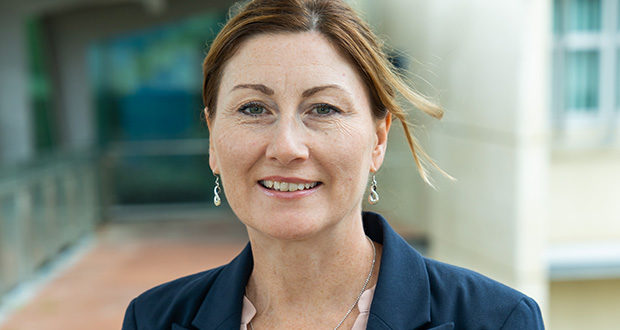People with eating disorders are being “repeatedly failed” by the NHS, the Parliamentary and Health Service Ombudsman (PHSO) has warned.
Today the PHSO marked the start of Eating Disorders Awareness Week 2023 by calling for urgent action from health leaders to tackle the number of preventable eating disorder deaths.
These calls come as the ombudsman warned that health organisations failed to meet several recommendations laid out in its report published in 2017, which highlighted serious failings in NHS eating disorder services.
The 2017 report looked at the case of student Averil Hart who died in 2012 after her anorexia rapidly worsened.
It concluded that every NHS organisation involved in Ms Hart’s case “missed significant opportunities” to recognise that her condition was deteriorating and that she was at significant risk.
As a result, PHSO laid out several recommendations for health organisations in order to tackle some of the key issues facing eating disorder services and their delivery.
However, it warned today that progress on meeting some of these targets had been slow and that there were still “unacceptable recurrent issues” within services which could lead to poor care for patients and avoidable deaths.
Ombudsman Rob Behrens said: “We raised concerns six years ago in our Ignoring the Alarms report, so it’s extremely disappointing to see the same issues are still occurring.
“Small steps in improvements have been taken, but progress has been slow, and we need to see a much bigger shift in the way eating disorder services are delivered.”
Mr Behrens added that eating disorders were “enormously complex” conditions and that those on the frontline treating people “have a difficult job to do”.
“This not helped by a lack of a sense of urgency to address the scale of the problem,” he said.
“Clinicians need better support to do their job of protecting patients,” Mr Behrens added.
One recommendation from the 2017 report was that the Department of Health and Social Care and NHS England should review the existing quality and availability of adult eating disorder services to achieve parity with child and adolescent services.
Meanwhile, another recommendation was that the National Institute for Clinical Excellence (NICE) should consider adding coordination as an element to their quality standard for eating disorders.
When contacted, NICE told Nursing Times that its standards were updated in 2018 to include a statement on coordinated care across services, specifically so that “people with eating disorders who are being supported by more than one service have a care plan that explains how the services will work together”.
“Early intervention is vital, and therapeutic relationships are at the heart of recovery”
Victoria Skerrett
Additionally, it said that the standard included a statement which ensured that “people with eating disorders who are moving between services have their risks assessed”.
Meanwhile, the PHSO report also called on Health Education England (HEE) to review how its education and training could address the gaps in provision of eating disorder specialists.
It argued that HEE should consider how the existing workforce could be further trained and used more innovatively to improve capacity of those with knowledge of the conditions.
Debi Reilly, HEE’s senior responsible officer for mental health, said: “HEE continues to work with partners to develop learning resources aimed at expanding the knowledge of clinicians delivering care to people with eating disorders across all ages – ranging from awareness raising and identification of eating disorders, to specialist interventions.”
Ms Reilly told Nursing Times that the MindEd Feeding and Eating Disorder Learning Hub was one example of a resource which offered training “for a diverse range of professionals”.
She also noted that since 2021, HEE had worked with eating disorder charity Beat to deliver an online accessible training package focused on eating disorders, using modules that were developed for all health and care professions including the nursing workforce.
She added: “Work is ongoing with partners across healthcare to further evolve the eating disorder training offer in a variety of ways.”
Responding to the calls today from the ombudsman, Victoria Skerrett, assistant professor of mental health nursing at the University of Birmingham, told Nursing Times that a focus on pre-registration training would help improve the profession’s knowledge of eating disorders.
She said: “It is important that nurses across fields of specialism have the confidence to respond with care and expertise to someone showing signs of an eating disorder.
“Early intervention is vital, and therapeutic relationships are at the heart of recovery.”
Professor Skerrett noted that all nurses needed to be alert to signs of an eating disorder and mindful of the rapid deterioration that could occur if it was not treated effectively.
She added: “Patients and families need to have confidence that care of the highest standard will be offered to them.
“A greater focus on education in pre-registration nursing training will help to ensure this is the case.”
The PHSO warned in its statement today that it had received 234 complaints relating to eating disorder services since 2019-20.
It recently upheld a case about the death of a 35-year-old college teacher who died from severe malnutrition and delusional disorder.
The PHSO’s investigation found a series of significant failings by both trusts that looked after her and concluded that had things been done differently, she may have survived.
Mr Behrens said: “It is heart-breaking to see repeated mistakes and tragedies like this happening again and again.
“We need to see a complete culture change within the NHS, where there is a willingness to learn from mistakes.
“The government also needs to fulfil its promise to treat eating disorders as a key priority so that we can see meaningful change in this area and make sure patients receive the quality of care they deserve.”
NHS England and the Department of Health and Social Care were contacted for comment.







